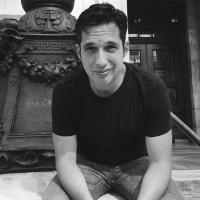The Genesis of Blade Runner 2049
Denis Villeneuve talks about how he got involved with Blade Runner 2049.
Thirty-five years later, we’re finally getting a sequel to Blade Runner. With the recent rise of the belated sequel (Jurassic World, Mad Max: Fury Road), and the legasequel (The Force Awakens, Creed), it no longer seems as insurmountable a task as it might have in the past. It’s still an intimidating project, though, and when the time came to find a replacement for Ridley Scott, the studio decided on Denis Villeneuve, a director whose impressive filmography includes the tense and atmospheric Prisoners and Sicario as well as last year’s instant sci-fi classic, Arrival.
“It was a universe that was open but it wasn’t necessarily intended to be one movie,” Villeneuve said during a roundtable interview at San Diego Comic-Con. “The desire was there, and there was so much that happened with the first movie that it froze there, and [Ridley Scott] thought it was dead.”
But it wasn’t dead; it was just in limbo thanks to complicated issues involving the rights. “The producers from Alcon were able to unfreeze the rights, which was like a master negotiation to get the rights back to life,” Villeneuve said. “The first thing they did was approach Ridley, of course. Ridley I think came back to them after 15 minutes to say, ‘Fly to London now.'”
With Ridley Scott on board, the next piece of the puzzle was original Blade Runner screenwriter Hampton Fancher. “They went to Hampton Fancher, and both of them had an idea to do a sequel that excited everybody, and the first thing they did when they got the idea is they phoned Harrison,” Villeneuve said. “Without Harrison there was no movie, and he said yes.”
Watch Blade Runner on Amazon
Villeneuve of course eventually landed in the director’s chair, but he hasn’t been known for sequels at all, let alone sequels to one of the most beloved and influential science fiction movies of all time. But Blade Runner, and specifically this approach to a follow-up, presented too rare of an opportunity.
“The screenplay I felt had strong ideas in it,” Villeneuve said. “I’m not saying it was a perfect screenplay, I’m just saying that I understood why Ridley felt that there was the potential to do a strong movie there.”
So what made a director not known for sequels or blockbusters decide to head to Blade Runner 2049‘s dystopian Los Angeles?
“I said that if I [make a big movie] one day, it would be for something that is really worthy, that is meaningfully artistically for me,” he said. “[Blade Runner] is one of my favorite movies. I said to myself, ‘They will do it. No matter what we think, this movie will move forward.’ I don’t know if I will succeed, but I know I will give it all my love and all my skill… at least I will be passionate about it and I will give my blood to make sure it respects the spirit of the first movie. I was very afraid to see a sequel to Blade Runner, but I said, ‘Well, at least if I do it, I will have some control over it.’ At least then I can blame only myself.” Still before he took the job, Villeneuve felt he needed “Ridley Scott’s blessing” and he wanted to look the director in the eye and hear it himself. He got it.
Since Harrison Ford had agreed to make the movie long before Villeneuve was involved, there was one final hurdle to clear. “I didn’t go to Harrison, I had to be approved by Harrison. I agreed to make the screenplay, I had to hear from Ridley that he wanted me to do this, and then I had to meet Harrison to be ‘scanned’ by Harrison to be ‘Harrison Ford approved.'”
Considering the quality of Vileneuve’s other films, this couldn’t have been a tough decision for Mr. Ford.
Blade Runner 2049 opens on Oct. 6. We will have more coverage for it soon.
Read and download the full Den of Geek Special Edition magazine here!
